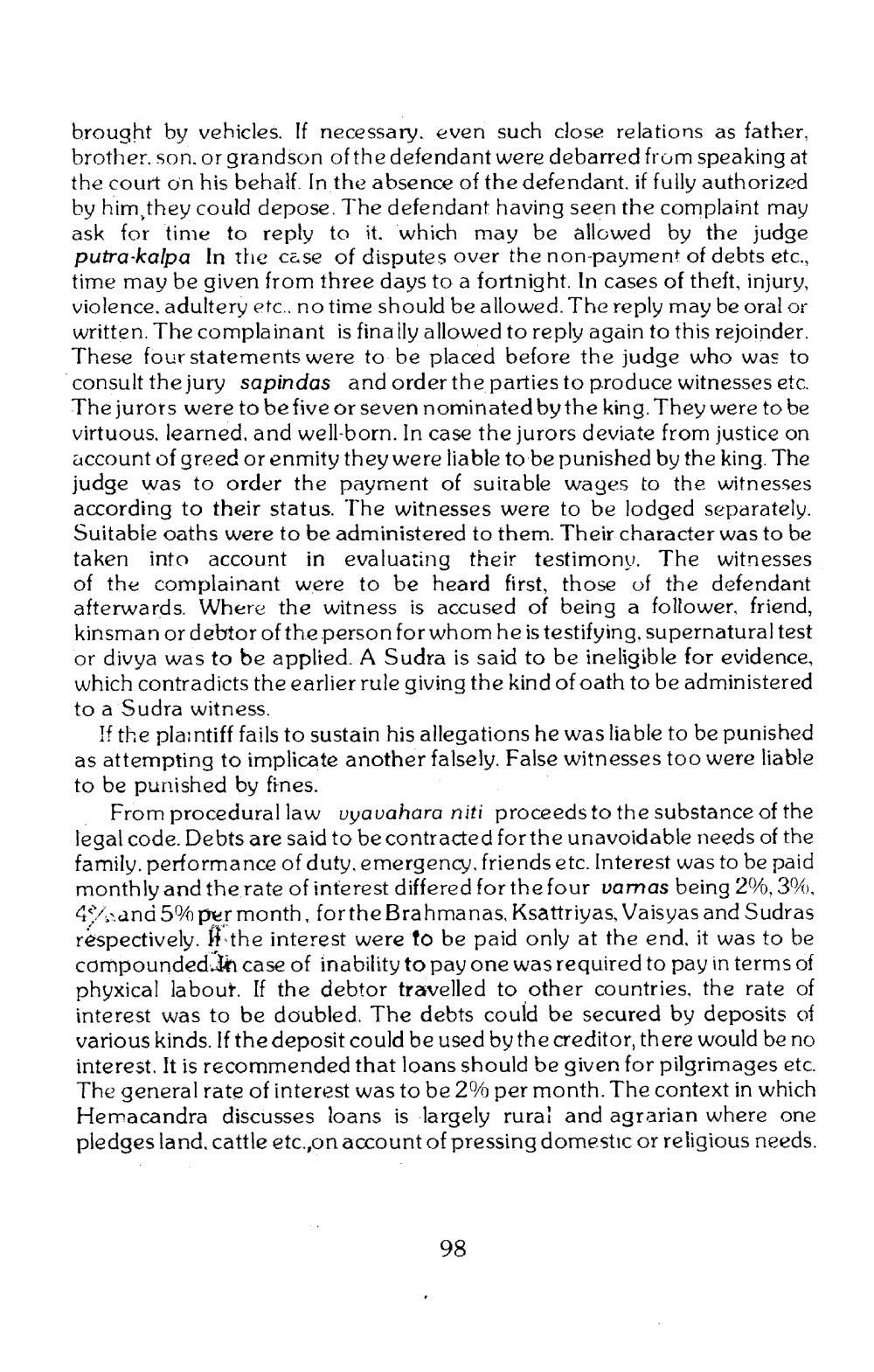________________
brought by vehicles. If necessary, even such close relations as father, brother, son, or grandson of the defendant were debarred from speaking at the court on his behalf. In the absence of the defendant, if fully authorized by him they could depose. The defendant having seen the complaint may ask for time to reply to it, which may be allowed by the judge putra-kalpa In the case of disputes over the non-payment of debts etc., time may be given from three days to a fortnight. In cases of theft, injury, violence, adultery etc., no time should be allowed. The reply may be oral or written. The complainant is finally allowed to reply again to this rejoinder. These four statements were to be placed before the judge who was to consult the jury sapin das and order the parties to produce witnesses etc. The jurors were to be five or seven nominated by the king. They were to be virtuous learned, and well-born. In case the jurors deviate from justice on úccount of greed or enmity they were liable to be punished by the king. The judge was to order the payment of suitable wages to the witnesses according to their status. The witnesses were to be lodged separately. Suitable oaths were to be administered to them. Their character was to be taken into account in evaluating their testimony. The witnesses of the complainant were to be heard first, those of the defendant afterwards. Where the witness is accused of being a follower, friend, kinsman or debtor of the person for whom he is testifying, supernaturaltest or divya was to be applied A Sudra is said to be ineligible for evidence, which contradicts the earlier rule giving the kind of oath to be a to a Sudra witness.
If the plaintiff fails to sustain his allegations he was liable to be punishe as attempting to implicate another falsely. False witnesses too were liable to be punished by fines.
From procedural law vyavahara niti proceeds to the substance of the legal code. Debts are said to be contracted for the unavoidable needs of the family. performance of duty, emergency, friends etc. Interest was to be paid monthly and the rate of interest differed for the four vamas bei 4/and 5% per month, for the Brahmanas, Ksattriyas, Vaisyas and Sudras respectively. I the interest were to be paid only at the end, it was to be compounded. In case of inability to pay one was required to pay in terms of phyxical labout. If the debtor travelled to other countries, the rate of interest was to be doubled. The debts could be secured by deposits of various kinds. If the deposit could be used by the creditor, there would be no interest. It is recommended that loans should be given for pilgrimages etc. The general rate of interest was to be 2% per month. The context in which Hemacandra discusses loans is largely rural and agrarian where one pledges land, cattle etc.,on account of pressing domestic or religious needs.




